Each November, the National Education Association (NEA) hosts American Education Week to celebrate public education and the individuals whose passion for teaching transforms the lives of students.
In honor of American Education Week, Dr. Rick Ginsberg, dean of the University of Kansas School of Education and Human Sciences, discusses recent achievements in public education, the challenges of the sector and how KU prepares current and future educators to spearhead positive change.
In your opinion, what have been the most notable achievements in public education during the last year?
All over the country, teachers are speaking up for themselves and taking stands on issues that affect their work lives. For years, teachers have dealt with increased pressure to produce positive classroom outcomes, often with fewer resources. But nationally, teachers and other education advocates are speaking up and challenging those who may be less informed about the work of teaching and serving students.
Teachers and educational institutions are also taking notable steps to better serve the growing diverse student populations in public schools.
What do you believe are some of the greatest challenges facing the public education sector today, and how can individual educators or educational institutions respond to these challenges effectively?
The biggest challenges we face are related to teacher shortages and other workforce issues. Typical shortage areas remain, including in special education and STEM, but shortages are beginning to appear in multiple content areas and many geographic locations. New delivery models are emerging to meet these shortages, but many of these models don’t offer teachers the preparation they need to succeed. Finding ways to recruit potential teachers into strong preparation programs is becoming increasingly important. Salary also plays a role here.
Another issue relates to the cost of technology and related ongoing needs for professional development that trains teachers to use it properly. At the KU School of Education and Human Sciences, we have expanded our online presence to make our programs available to larger audiences, and we keep our content fresh and state-of-the-art to meet educators’ needs. Our on-campus programs are increasingly using hybrid models to make those programs more accessible, as well.
What are some of the unique ways in which the online graduate programs from the KU School of Education and Human Sciences prepare today’s educators to lead change and success in public education?
Our programs are state-of-the-art. For example, we created a virtual school district, Jayhawkville, for use in our master's in educational administration program. Created from a series of case studies, Jayhawkville contains data for more than 30 simulated schools. Students can review assessment scores, videos, profiles of faculty, students and staff, and more as they work through real-world challenges in a risk-free setting. It is essentially SimCity for educators.
Students rate our teaching and program quality very high and find the instructional tools very useful. We also find that our online students feel as engaged with KU and our faculty as on-campus students. Our students leave our programs as change agents.
Beyond preparing effective and impactful educators, how does the School of Education help facilitate change, success and opportunity in U.S. public education?
A big focus for all our programs has been on strengthening educators’ skills and understanding around better serving the growing diverse student population. American public schools now host a majority of minority students. We continually work to help teachers and other educators better serve this population.
Also, with our focus on online programming and other new instructional technology, we are working to help educators find success with student populations that demand new approaches.
Are you ready to transform public education in the U.S.? Explore what you can do in partnership with the University of Kansas School of Education and Human Sciences, which offers flexible online programs to meet the needs of working educators.

